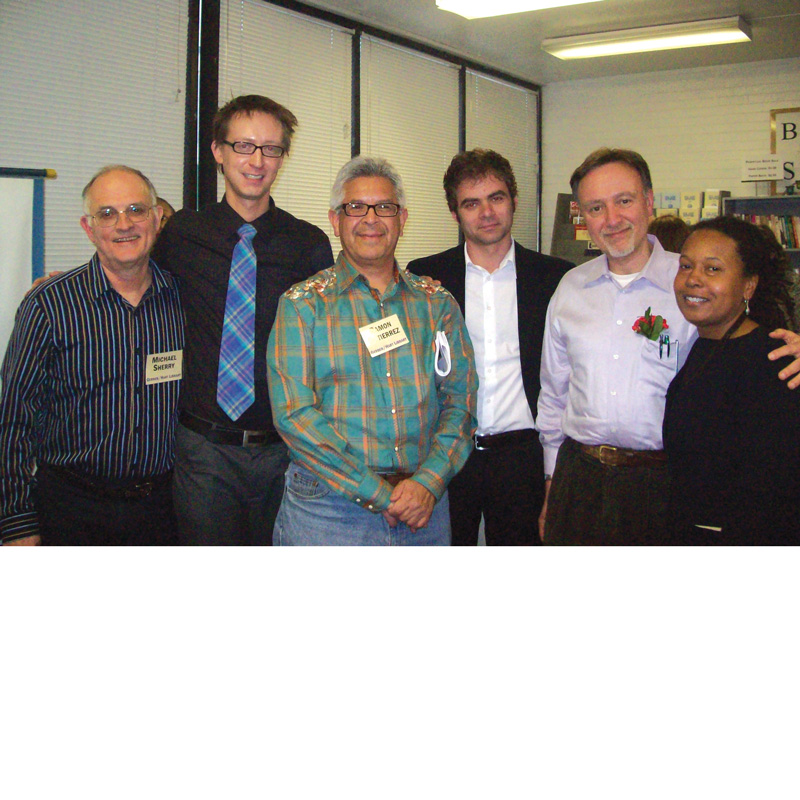
John D’Emilio’s book Sexual Politics, Sexual Communities: The Making of a Homosexual Minority in the United States, 1940-1970 was published by the University of Chicago in March 1983. To mark the 25th anniversary of the book, Gerber/Hart Library hosted a tribute to D’Emilio’s work and career on Sunday, March 16. The event included a panel discussion with presentations by local scholars Cathy Cohen and Ramon Gutierrez, both of the University of Chicago, and Michael Sherry of Northwestern University.
Panelists’ comments focused on the influence of the book on their own research and teaching, and the changes in the field since its publication. Cohen spoke about first reading it while a graduate student at the University of Michigan, and about feeling a “visceral connection” to both the book’s research and the communities it spoke to and about. Referring to the acknowledgments section of Sexual Politics, she noted that D’Emilio had not drawn exclusively upon academics, but had worked with scholars, writers and activists. For Cohen, this spoke to the fact that intellectuals needed to “work in alliance” with a broader community in order to achieve “real political transformation.”
Ramon Gutierrez contextualized shifts in the historical understanding of local queer politics since the publication of D’Emilio’s book, especially in relation to race, ethnicity and gender. Homophile movements like the kind described in D’Emilio’s book are seen in terms of a shift: from being defined by sexual acts to being defined by sexual identity. But, Gutierrez pointed out, analysis establishes a binary between gay and straight that doesn’t play out the same way across communities of color. Addressing the politics of accommodation of early gay groups, Gutierrez pointed out that this reflected and came about in large part because of the homophiles’ complicity with heterosexual patriarchy. Michael Sherry’s comments focused on the role of Sexual Politics in his own teaching career. He spoke about constructing syllabi for gay history courses in the early 1970s, when the field of gay history was emerging, For him, the appearance of Sexual Politics meant that he could now direct students to a work that contextualized what he wanted to teach: “gay history made sense.”
Event co-chairs Timothy Stewart-Winter and Thomas Adams read from tributes sent by queer scholars across the country, including Alisa Solomon and George Chauncey. John D’Emilio concluded the evening’s presentations by reflecting upon the early days of collecting material for his project and of often relying upon the private collections of individuals. He pointed out that while much has changed in terms of the acceptance of marginalized communities’ histories as fit objects of study by large institutions, local queer organizations like Gerber/Hart need to be sustained to ensure that LGBT history archives are preserved.
Originally published in Windy City Times, 19 March, 2008.